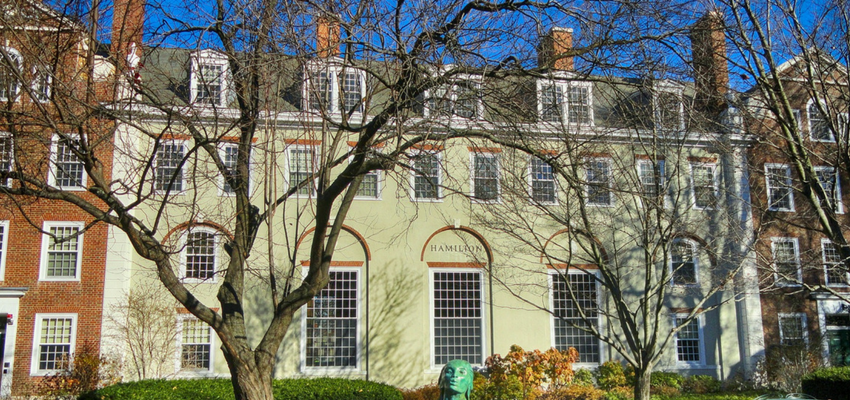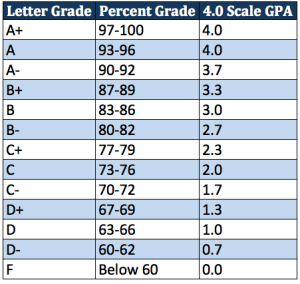
Ok, so this title might be misleading. I didn’t exactly get accepted and then reject admission to Harvard Law School. But I am confident that I would have gotten in.
My Evidence
First, let me support my strong claim that I would have been accepted based on the numbers. Harvard’s class of 2016 LSAT scores at the 25th, 50th, and 75th percentiles are 170 – 173 – 175. After my 3rd practice test, I scored a 164, which was the 89th percentile for that exam. Not good enough. But, then I would have taken 50 practice tests (of real exams given the previous years). I’m sure I would have increased my score to the low 170s, at least, because the LSAT is very learnable.
Second, Harvard’s class of 2016 GPA at 25th, 50th, and 75th percentiles is 3.77 – 3.88 – 3.95. My Law School Admissions Council (LSAC) GPA is 4.08—because LSAC counts an A+ as a 4.33 GPA and I have 38 A+ credits. So, my GPA is well above Harvard Law’s 75th percentile and probably around its 95th percentile.
The Proof
Below are screenshots at http://www.hourumd.com/ that use data points from previous students to calculate my chance of admission with certain numbers.
170 LSAT, 4.08 GPA
173 LSAT, 4.08 GPA
If I raised my LSAT score by six points after another six months of studying and 50 practice tests, which is reasonable, then I have a 75% chance of getting in according strictly to the data points. A nine-point increase with the same amount of prep and time is a 173 LSAT and a 87.5% chance of admission to Harvard Law. Of course, there are other factors to getting accepted.
Beyond the numbers, I also believe my resume and extracurriculars were adequate enough as being president of two student organizations, having various quality internships, completing a senior thesis, and doing other activities. Also, people from Miami University get into Harvard Law regularly, so my undergrad school is not a problem in my chance of admissions.
The Decision
A major unattractive feature of Harvard and many law schools is the tuition and housing costs. One source reported the total debt-financed cost of attendance is $277,772 at Harvard. My parents were not going to pay for law school and I certainly did not want that debt on my shoulders for a decade. (Although I explain many ways to pay for it in this post titled how to fund graduate school.)
Yet, the ultimate deciding factor was not the cost of attendance, but my interests. I initially wanted law school for the prestige, competition, and self-accomplishment it would provide, which isn’t exactly the best reasons to make this big of a life decision. I could get these three elements in another area where I was completely invested—and wouldn’t have to pay hundreds of thousands of dollars.
The Lesson
Although I studied over 750 hours for the Law School Admissions Test (LSAT), I know I personally made the right decision in choosing a different path. For some people, going to law school is their calling and the best decision for their future. It’s just not my interest. Also, I don’t want to come off as bashing Harvard Law. It is an incredible institution and produces some of the finest legal minds in the world.
So my point in this story, is to share the importance of constantly evaluating your daily actions and long-term goals to make sure they align. Make it a priority to reflect each month, because if you can save yourself years of going down the wrong path, it will be worth it. Your reflection can be brief, just ten minutes of focused processing will get the job done.
It was difficult to give up law school after dedicating the majority of my college years to this goal, but it would be far worse to go to law school and be a lawyer if it wasn’t what I wanted.





This post literally screams: “I have no idea how law school admissions actually work.”
Nobody. Literally nobody actually has a 87% admissions into Harvard Law – that includes students with a 4.0 GPA from Harvard College and a 175 on the LSAT. Your interpretation of the data is at the very least overtly reductionist: you ignore that the majority of applicants attended Ivy League colleges for undergrad, and that a 4.0 GPA from ITT Tech is not the same as a 4.0 GPA from Yale.
If you think that being in the bottom 25th percentile – i.e. 3/4 students scored higher than you – and simply having a good GPA gives you greater than a 10% chance of admission, in reality, then you would have been in for a very harsh wakeup call had you actually applied.
The number of 4.0 Ivy League students with 175+ LSAT scores that are rejected from Harvard Law each year are in the thousands, and to pretend otherwise makes you look at best like an ignoramus and at worst like an absolute egomaniac.
And frankly, even your decision-making process is just blatantly logically flawed. You mention cost, but fail to analyze the education as an investment – i.e. any analysis of cost should be a discussion of ROI. You should have weighed the total cost of the education with the expected marginal increase in lifelong earnings as a result (this of course ignores the myriad other benefits, like networking, provided).
LSAC GPA gives a 4.33 for A+s, you can look it up here http://abovethelaw.com/career-files/how-lsac-recalculates-your-gpa-for-law-school-admissions/. Also, visit http://www.law.harvard.edu/prospective/jd/apply/undergrads.html to see that not the majority, but the minority of students that go to Harvard Law come from Ivy League schools. Lastly, I personally believe that my lifelong earnings would decrease if I went to law school. Thanks for your feedback!
1) Yes, they accept a 4.33 for A+s; the issue is that the vast majority of undergraduate institutions do not even *offer* A+ grades. So a 3.9 on a 4.0 scale is still considerably more impressive than a 4.08 on a 4.33 scale.
But that is still just scratching the surface – obviously, a 3.9 from Stanford is not weighted the same as a 3.9 from ITT Tech, for example. And even within the same schools a 3.9 in Engineering is not the same as a 3.9 in Communications.
2) That list is a list of accepted universities, but it does not have the number of matriculants from each; it does not at all prove your point – i.e. there *could* be 1 person from each non-Ivy and 500 from each Ivy (this is obviously hyperbole)
3) “I personally believe” is exactly the point. Your beliefs are delusional, and rooted in fallacious logic (see #2 above for the most recent example). Your analysis was reductionist and ignored myriad factors that are considered in Law school admissions, in general, let alone from Harvard Law or equivalent institutions. Your true odds of admission were certainly much lower than 25%, and that is likely being generous.
Although we disagree on some things (that’s ok), your views are interesting. Thanks for getting me to think more about the topic.
GPA from non-top tier schools, which Miami would be considered in the realm of HLS, cannot help you. It can only hurt. Nobody is going to say “Wow, this kid got a 4.0 from Miami.” They are going to say “This kid went to Miami, but he got a 4.0 and double majored so let’s keep reading.” If you could have increased your LSA, which is questionable, you would have a chance for them to read the rest of your application. Goox EC’s for HLS are regional or national, at least (fulbright, southeast champion debater, etc.). President of book club means nothing to them. A senior thesis (LOL) means absolutely nothing unless it was published in a peer reviewed journal. An internship is worth less than work experience, but is acceptable if you are otherwise a good candidate. Then you would get invited to an interview which would give you a 60% chance or so of admission. Basically, you probably would not have been accepted.
Unfortunately we will never know. Thanks for contributing to the conversation though.
Final note: don’t brag about having a 4.08 GPA. Anything over 4.0 actually makes you look worse, as not a single liberal arts college (except I believe Stanford) even gives the option of above a 4.0. Doing so opens your GPA to being interpreted on a 5.0 scale (which yes, those do exist) and makes you look much, much worse than if you simply said 3.95.
This is one of the most egotistical articles I’ve ever seen. You know almost nothing about law school or being a lawyer. The whole point of the post was to show the world “Look, I could get into Harvard!!”. Well you didn’t. Yes, with those (hypothetical) numbers you probably would have a decent shot, but that’s all it is – a hypothetical ego trip
Actually the point of the article is to stress the idea that consistent reflection on long-term goals is crucial for success and satisfaction, because it can save you from going down a career path you’re going to regret. I simply shared an example from my life, which you clearly enjoyed, to make the point. Thanks for reading.
Yeesh, I am surprised at the bitterness and vitriol in these comments.
I respect your outlook on things and it seems your attitude has helped you do well in life. Thank you for the positive and uplifting commentary in the 0L world of insanity that pervades the internet.
I have been rejected to some of the top schools and accepted into some this cycle. I may just decide not to go and use my talents without incurring debt. However, I am undecided.
Nonetheless, I am content with whatever happens. Perhaps I will incur radical debt and spend my life raging against the system. Perhaps I will get a full ride at my rural town and enjoy the outdoors while having a relaxing humble career.
By the way, your background is uplifting. Regards.
Some people apparently get off by having the day job of internet troll. And thanks for your comment and positive words.
There’s certainly an option to work hard enough that you get out of debt quickly, but that’s a big sacrifice that could be spent in other areas. All depends on your interests and preference. Either way, good luck to you in whatever you decide.
If away all you want, but you didn’t do it, and you probably never would have.
You were stuck on the low 160s plateau after 750 hours… Where exactly were you gonna go? Was the 751 hour the charm? Let me tell you what happens to most of those people who are stuck on that plateau… They never make it to 170. Most of them never even make it 168.
My guess is that you ran out of time to prep for the test and saw that you didn’t have or build skill set necessary, and you gave up. It was at least a smart decision.
You likely incorporated the story into this article because you partially wanted to sooth your “could’ve been” dreams. Well, let me tell you what would have been. You probably would have taken test three times and been stuck on that plateau forever and maybe ended up with a half decent scholarship at Northwestern. Nothing wrong with that, but don’t pretend like you were a shoe-in for HLS. You weren’t, and you probably would never have been.
Now, you run a Buzzfeedesque site for designed to help people be successful. Wow, is this what you’ve always wanted since age 2? Nope, you wanted to be a lawyer, and you failed. Too bad. So bad.
BTW, I scored a 170, a real 170 and have taught many students so I have experience with dead end students that should just give up. At least you were smart enough to realize when to give up…
I took 3 practice tests and top test takers take at least 75. So I certainly would have improved after 50.
Also, Buzzfeed is valued at around $1 billion, so thanks for the compliment bro. At the end of the day, you’re on my site and I’m not on yours.
I was a non-traditional Harvard law applicant, and now a Harvard law graduate, and I actually agree with a lot of your reasoning.
I think there’s very little doubt you would have hit 170 in your practice tests, perhaps even consistently. The thing about the LSAT is that it’s a lot like any professional sport–you can have good days and horrible days, and unfortunately those days sometimes happen during the real deal. I was consistently testing in the high 170s at home and but on the only day it mattered, my score was in the low 170s. I was actually studying to re-take the test when I got the call that I was accepted. I thought there was no way in hell I was getting in with that score. So it’s really hard to say what you would have gotten on the actual test day, but you would have surely gotten your practice test scores into the 170s.
The reason I was so hung up on my LSAT score is because I went to an abysmally poor undergrad for Harvard’s standards (probably the only person to ever go to Harvard law from that school). My only saving grace was that I had a 4.0, a double major, and I was valedictorian. So I do think that your high GPA would have worked in your favor, as it did for me. But I agree with the other posters that a GPA above 4.0 is not better than a 4.0, unless you had nothing but A+ grades.
I had mediocre extra curricular a and work experience. I’m also white and don’t have a particularly interesting background. So, I have no idea how I got in actually. It just goes to show you that it’s a huge crap shoot.
Huge accomplishment graduating from Harvard Law, congrats! You’re right, if your LSAT score isn’t around 175 or higher, it’s a crapshoot a lot of the times for Harvard, Stanford, and Yale.
Thanks for the insight from someone who has gone through it.
While it would’t have mattered that you went to Miami, as law schools legitimately only care about the actual numbers (for the rankings), it does seem like a stretch that you would have hit 170 if you had already put in 750 hours (practice tests or not). As long as you’re happy, live your life.
It is definitely misleading that you didn’t get into Harvard. You didn’t so much reject it as recognize they weren’t going to accept you so you didn’t give them a chance to reject you.
I’m soooo happy I never went down the law school road!